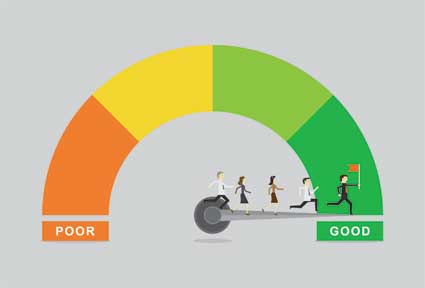Are You Ready, Willing and Able?
As with any job, starting a home daycare business has its benefits as well as drawbacks. The responsibility and demands of a full time job taking care of the needs of a wide range of children on a daily basis may be extremely tiring and frustrating at times. However, those experienced in home daycare also are the very same people who say they have never felt so rewarded or needed in their lives.
One of the main requirements of a child caregiver is to be able to love other children in addition to your own, if you have children already. Some childcare givers are young, others middle-aged, while others are heading toward their senior years. What do they have in common that enables them to motivate themselves day after day to take care of the needs and demands of squalling infants, demanding toddlers, or preschoolers with special needs? Perhaps they all have extra 'love genes' or doses of patience or just plain like being around children all day.
There is no college degree or program that can actually teach child day care providers. Such care is provided with the experience and education that develops through caring for all types of children with all types of needs. Every child will come with his or her own set of challenges.
While it is certainly advisable that anyone wishing to start a home daycare business consider taking basic classes in child development, it is not a requirement for many states. This article will focus on the mental and emotional motivations and skills that are necessary to be a successful home daycare provider.
Caregivers are able to offer a multitude of abilities and talents as well as valuable objects of support to parents seeking your services. You'll be required to wear many hats in your job a childcare provider, including referee, cook, nurse, and teacher. However, those very same traits and skills are necessary for any mother, so perhaps it's not such a stretch of the imagination.
Since studies have shown that the majority of home daycare providers are women, we will use the feminine pronoun when discussing scenarios or issues that concern all caregivers. This is not meant to lessen the contributions of many supportive spouses, friends or loved ones, but merely to offer a more personal course of instruction involved in the basics of home daycare.
|
� Do you have energy to spare? � Do you enjoy being around children other than your own? � Are you patient and tolerant of others? � Are you willing to put up with a messy house? � Are you calm in an emergency? � Are you sensitive to the needs of others? � Are you able to provide a sense of continuity to children of all ages? |
Of course, those are just a few of the many questions that anyone interested in starting a home daycare business should seriously consider. In addition, anyone interested in providing daycare to children must discuss the wide variety of issues (such as privacy) that may be involved with husbands, wives, siblings, or other family members who share the house where the services will be provided.
Aptitude to perform the many jobs and skills necessary in providing daycare is not the only consideration that needs to be thoroughly examined and discussed with other family members. You will also need to decide whether you're going to be self-employed or affiliate yourself with an agency that provides childcare services.
Many community groups as well as religious organizations regularly recruit caregivers to provide daycare services in communities around the country. While they often help with the startup of the business and provide training and some supervision, individuals who go this route should know beforehand that the agency will collect the fees from parents, and you will be paid a predetermined amount per child.
While this type of association may be beneficial to some and offers the benefit of supplies such as those necessary for teaching, arts and crafts, equipment, books, and toys, a person may have to take more children than initially planned for to meet their monetary goals.
Many experienced home daycare providers suggest that those first entering the field began with such an agency. While there may be state and federal guidelines and budgets that you may be required to follow, adequate support is always available, as are substitutes to take your place if you are sick, as well as the potential of offering insurance coverage and other needs.
However, those who decide to go into business for themselves are able to enjoy the benefits of being home with their own children and enjoying an increased income. Best of all, you can be your own boss. It is really up to each individual to decide which way to go, but talking to others who are experienced in the daycare business, as well as accessing resources to local or state governmental agencies for guidance is always a good idea.
Starting Costs
Some equipment and supplies and toys will be different for infants and toddlers than the needs required by preschoolers and school-age children. However, two basic essentials for all age groups will be a box or container in which each child can store his or her personal belongings and a clothes hamper that may be used for dirty and soiled clothes.
Equipment and supplies for infants and toddlers may range from safety gates to playpens to rocking chairs, high chairs, and baby walkers, changing tables, cribs, sheets or crib bumpers.
Equipment and toys appropriate for preschoolers and school-age children may include puzzles, climbing toys, small tables and chairs, arts and crafts supplies, pails and shovels, sandbox, just to name a few.
To help with equipment and toys, caregivers are encouraged to let family, friends and church groups know that donations will be gladly accepted. However, do make it clear that you don't want any equipment, toys, or supplies that have been damaged or are missing any pieces.
Feeding, sleeping, and play areas will need to be determined for the ages and needs of all the children you will be caring for on a daily basis. Determining how much of your family home is going to be used for providing childcare also needs to be discussed and agreed upon with other family members.
Introduction
Meeting Legal Requirements
In most counties in the United States, question or orientation sessions are generally held on county levels on a regular basis. Written applications may be required, which may be followed by a home inspection prior to receiving permission to provide daycare. However, individuals need to be aware that requirements by state differ widely. What is necessary in New York is not necessarily required in Arizona.
In addition, the capacity of any business is also regulated. This means that just because your cousin in Oregon is able to add children to her daycare business any time she wants to doesn't necessarily mean that you'll be able to do so for your home-based business in Texas. It is the responsibility of every daycare provider to know what the local and state requirements are and to follow them.
State licensing and regulations are put in place to help protect children. While the neighbor across the street may be wonderful with kids and provide them with adequate space and attention for their needs, her house may contain dangerous appliances or scenarios that may endanger the safety and security of toddlers. By ensuring that licensing and regulations are followed, parents of all age groups may be assured that the person in charge of his or her child is providing the healthiest, safest, and most secure environment possible.
While many daycare providers may feel that government regulations are constricting, they may also provide the effect of assuring parents that a home daycare business is given a "stamp of approval" by government inspectors, which will enhance your childcare business and professionalism. Everyone knows it is quite difficult to find good childcare these days, and having such a recommendation provides a huge boost, not only in reputation, but in income as well.
A specific licensing agency will be able to provide further information on where to apply for a license, as well as how to do so, and the type of forms that may be necessary based on your locality. In most cases, individuals are required to attend a short meeting prior to the application process.
If it is not possible or convenient for you to find the Department of Social Services in your community, potential home daycare business providers may also call the National Association of Family Child Care. They will be able to suggest local offices in your state. Also, individuals may access the National Resource Center for Health and Safety in Child Care.
In the event that your state does not require specific licensing, it is nevertheless suggested that you follow the guidelines provided by the National Association of Family Child Care to assure parents that you are providing the best possible care for their children.
Sure, there are always childcare providers found in every neighborhood that charge less and have limitless numbers of children allowed to watch endless hours of TV or roam the neighborhood during the daytime, but that doesn't equate to quality and safe daycare. Sometimes, parents will choose the cheaper option, but stand your ground and follow guidelines for the potential security and opportunities for a long-term home daycare business that will last years longer than such neighborhood competition.
|
Again, it is best to check with local and state requirements regarding stipulations for increasing capacity in your area. Childcare providers should also keep in mind that neighborhood children coming over to play may also be considered as part of your capacity if they are nine years old or younger.
Individuals may also be watched for how they work with children, the type of play equipment and activities that are available and the types of meals and snacks that are served. The general appearance of childcare providers as well as their ability to maintain health standards will also be evaluated.
Every state will have their own requirements and regulations regarding conditions and properties, so always ask ahead of time to make sure that your home will be able to provide the necessary basic requirements to ensure a quality-based and safe environment for all age groups.
|
The National Association of Family Child Care will be able to answer specific questions or issues regarding insurance, so be informed and knowledgeable before contacting your personal homeowner insurance company.
Providers may cringe at the added expense of insurance, but it is essential. Remember that insurance premiums incurred for family childcare are tax deductible and will be able to be written off as business expenses at the end of the tax year.
Again, in order to give your home daycare business the best chances for success, daycare providers should always receive the stamp of approval from local, city, or state governments to ensure the success of his or her business. After all, how many people buy a home without making sure the plumbing works and the roof doesn't leak? How can you ask parents to entrust their children into your care without making sure that you are going to provide them the safest environment possible?
County or state agents or officers typically inspect home daycare businesses on a yearly basis. They will inspect your property, ask to see records of the children for which care has been provided and will be able to advise on any changes that may be needed to provide safety in and around your home. Be assured that investigators allow homeowners ample time to make such changes.
Inspections are made during operating hours and only involve areas of the home or yard that are involved in the childcare business. Therefore, if certain rooms in your home do not allow access by the children you are caring for, the investigator will not inspect those areas.
Again, it is urged that individuals considering starting a home daycare business do their research on local zoning laws, city, county, and state requirements regarding regulations and licensing and make sure that all questions are answered before you get too far into the process.




























